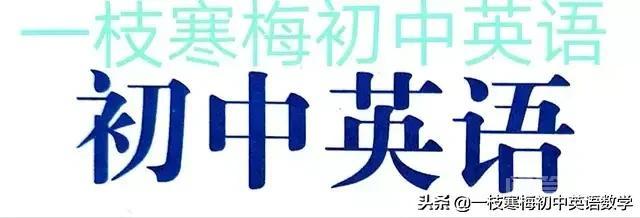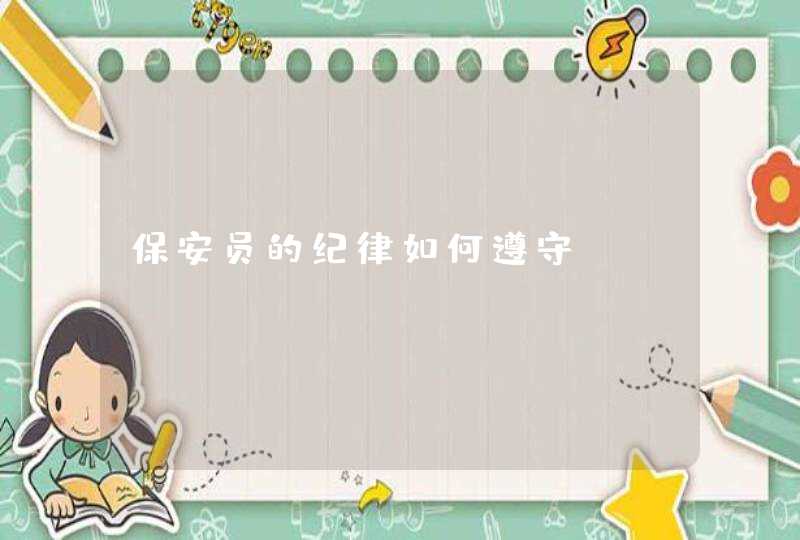
G部分单词:
game[ɡeɪm] n. 游戏;运动;比赛
garden [ˈɡɑːd(ə)n] n. 花园,果园,菜园
gate [ɡeɪt] n. 大门
general [ˈdʒenər(ə)l] a. 大体的;笼统的;总的
in general 总的说来;大体上
In general her work has been good, but this essay was bad. 总的说来,她的作品不错,不过这篇文章糟透了。
generally adv. 普遍地;大体地
The plan was generally welcomed.该计划广受欢迎。
gentleman [ˈdʒent(ə)lmən] n. 绅士;先生
geography [dʒɪˈɔɡrəfɪ] n. 地理学
German [dʒɜːmən] a. n 德国(人)的,德语的,德语,德国人
Germany[ˈdʒɜːməni] n. 德国
get(got, got) [ɡet] vt. 成为;得到;具有;到达
I hope that I can get a decent job with a good salary
我希望有一份既体面,收入又高的工作。
get back 退还,送回去,取回,返回,回到某地,回复某人(电话,信笺等)
You’d better get back home and get the books back.
你最好回家把书取回来。
The ship got back to the port yesterday. 船昨天回到了码头。
get close (to) 接近
get in 进入, 收获,达到
The train got in late. 火车到站晚点了。
The farmers are getting the crops in. 农民们正在收割庄稼。
get in the way 妨碍
get off 下车
We will get off at the next bus stop . 我们将在下一站下车。
get on 上车
I get on the train every moning at 6:30.我每天早晨六点半上火车。
get on/along (well)with 和……相处(很好)
How are you getting along with your classmates?
你和你的同学相处的如何?
get the first/second place 获得第一名/第二名
This time he got the first place in the exam. 这次他考试得了第一名。
get up 起床,起身
Get up early or you’ll be late for school. 快点起床,否则你上学晚了。
get to 到达
He just got to Beijing. 他刚刚到达北京。
get out 出去;离开
get out of 从……出来
You should get out of your room.你应该从房间里出来。
get over 克服;恢复;原谅
She can’t get over shyness.她克服不掉羞怯感。
gift [ɡɪft] n. 礼物;赠品
a birthday gift 生日礼物
giraffe[dʒɪˈrɑːf; (US) dʒəˈræf] n. 长颈鹿
girl [ɡɜːl] n. 女孩
give(gave, given) [ɡɪv] vt. 给;递给;付出;给予
I asked my teacher to give me some advice on how to get along with others.
我请求老师在如何与人相处方面给我一些建议。
give … a hand 助……一臂之力,给……帮助
Could you give me a hand with these boxes?你能帮我搬箱子吗?
give…a ring/call 给……打电话
give away 免费送出;赠送
He gave away most of his money to charity.
他把大部分钱都捐赠给慈善事业了。
give back 归还
Could you give me back my pen? 你把那支笔还给我好吗?
give birth to 生(孩子)
She gave birth to a girl last night. 昨晚她生了一个女孩。
give in 上交;呈交;屈服;让步
Please give your exam papers in to your teacher when you finished.
考卷答完后请上交给老师。
She’s a brave player, she never gives in. 她是个勇敢的选手,从不屈服。
give out 分发;散发
The teacher gave out the test papers. 老师发了考卷。
give up 放弃,停止
Can’t you give up smoking? 你难道就不能戒烟吗?
glad[ɡlæd] a. 高兴的;乐意的
I’m glad to hear he’s feeling better. 听说他身体好些了,我很高兴。
glass [ɡlɑːs; (US) ɡlæs] n. 玻璃杯;玻璃;(复)眼镜
a glass of water 一杯水
(pl.) glasses 眼镜
a pair of glasses 一副眼镜
glove [ɡlʌv] n. 手套
a pair of gloves 一副手套
glue n. 胶水
mend a broken cup with glue 用胶粘补破杯
glue two pieces of wood together 将两块木头粘合在一起
go (went, gone) [ɡəʊ] vi. 去;走
go ahead 走在前面,领先;干吧,干下去
—May I start now? 我现在可以开始吗?
—Yes, go ahead. 可以,开始吧。
go away 走开
Don’t go away. I’ll be back in a minute.别走开,我马上回来。
go by (指时间)过去;消逝
As time goes by my memory seems to get worse.
随着时间的流逝,我的记忆力似乎越来越差了。
go in for 参加
His brother doesn’t go in for sports. 他弟弟没有参加运动。
go fishing (shopping, skating) (去)钓鱼(买东西,滑冰)
go for a walk 去散步
go off (闹铃)闹响,离开,爆炸
This morning my alarm clock didn’t go off. 今天早晨我的闹钟没响。
go on 继续(说/做)下去
go on with 继续
Who knows what’s going on here?有谁知道这里发生了什么事?
go over 复习,仔细检查
Let’s go over the lesson again.
让我们把功课再复习一遍。
go straight along 沿着……一直往前走
Go straight along the street and take the second turning on the left.
沿着街道向前走,在第二个拐弯处左拐。
go through 查阅;浏览
I always start the day by going through my email.
我总是每天一早就查阅我的电子邮件。
gold [ɡəʊld] n.a. 黄金;金的;黄金的
a gold medal 金牌
win a/the gold 获得金牌
good [ɡʊd] a. 好;良好
be good at 擅长,善于
He is good at drawing. 他擅长绘画。
be good for 对……有好处
Practice is good for our health. 锻炼有益于健康。
be good to 对……好
The old man is always not so good to foreign visitors.这老人对外国游客的态度一直不好。
cheap goods 便宜货物
cotton goods 棉织商品
goodbye (bye-bye) [ɡʊd-baɪ] int. 再见;再会
government [ˈɡʌvənmənt] n. 政府
grade [ɡreɪd] n. 等级;(中小学的)学年;成绩,分数
grammar [ˈɡræmə(r)] n. 语法
granddaughter [ˈɡrændɔːtə(r)] n. (外)孙女
grandma=grandmother[ˈɡrænmɑː][ˈɡrændmʌðə(r)] n. 奶奶;外婆
grandpa=grandfather[ˈɡrænpɑː] [ˈɡrændfɑːðə(r)] n. 爷爷;外公
grandparent [ˈɡrændpeərənts] n. 祖父(母);外祖父(母)
grandson [ˈɡrændsʌn] n. (外)孙子
grape [ɡreɪp] n. 葡萄
a bunch of grapes 一串葡萄
grape juice 葡萄汁
grass [ɡrɑːs; (US) ɡræs] n. 草;草场;牧草
great [ɡreɪt] a.ad. 伟大的;重要的;好极了;(口语)好极了,很好
Great Lake 五大湖(加拿大及美国之间的五个湖的总称)
green [ɡriːn] a.n. 绿色的;青的;绿色
green pepper n. 青椒
grey[ˈɡrei] a. 阴沉的,灰色的,昏暗的
ground[ɡraʊnd] n. 地面
group [ɡruːp] n. 组,群
a group of girls 一群女孩子
a newspaper group 报业集团
grow(grew, grown) [ɡrəʊ] v. 生长;发育;种植;变成
The crops in the field are growing well.
田里的庄稼长势很好。
grow up 成年,长成
I want to be a doctor when I grow up.
我长大后想当医生。
guard [ɡɑːd] n. 警戒;保护装置
guess [ɡes] vi. 猜
Can you guess her age/how old she is?
你能猜出她的年龄吗?
I guess that she is over forty.
我猜她已过四十了。
guest [ɡest] n. 客人;宾客
He invited her to be his guest for the evening at the theatre.
他邀请她晚上去看戏。
guide [ɡaid] n.v. 指南,向导,入门书;引导,带领
a tour guide 导游
I know the place well, so let me be your guide.
我熟悉那地方,我来当你们的向导。
I guided him to his seat. 我把他领到他的座位上去。
guitar [ɡɪˈtɑː(r)] n. 吉他
gun [ɡʌn] n. 枪;炮
Look out, he has got a gun!小心,他拿着枪呢!
H部分单词:
habit[ˈhæbɪt] n. 习惯;习性
be in/fall into/get into the habit of doing sth. 有(养成)做某事的习惯
He is not in the habit of drinking a lot. 他不习惯于多喝酒。
I’ve got into the habit of turning on the TV as soon as I get home.
我已养成了一到家就打开电视的习惯。
hair [heə(r)] n. 头发
hair band 发带
hair clip 发卡
haircut n. 理发;发型
That’s a nice haircut. 那个发式很漂亮。
You should have a haircut. 你该理发了。
half [hɑːf; (US) hæf] a. n. 半,一半,半个
I divided the apples into halves. 我把苹果分成两半。
half past one 一点半
hall [hɔːl] n. 大堂;会堂;礼堂
in the hall 在大厅
hamburger [ˈhæmbɜːɡə(r)] n. 汉堡包
hand [hænd] n. 手;指针
hand in 交上来
The teacher asked the students to hand in their papers.老师叫学生将试卷交上来。
hand out 分发;发放
They are having out emergency things. 他们正在分发紧急物品。
handbag [ˈhændbæɡ] n. 女用皮包;手提包
handsome[ˈhænsəm] a. 英俊的
hang(hung/hanged,hung/hanged绞死) [hæŋ] v. 悬挂;吊着;把……吊起
hang out (俚语)闲逛;闲荡
happen [ˈhæpən] vi. (偶然)发生
You'll never believe what happened to me today at school.
你永远不会相信我今天在学校发生的事。
sth. happen to sb. 某人发生某事
If anything happens to him, let me know. 如果他发生什么事,就通知我。
happen to do 碰巧;恰巧;恰好
She happened to be out when he called. 他打电话是,她恰好不在家。
词义辨析:happen/take place
happen 指偶然发生的或未经筹划的。
The accident happened at about 9:30.事故发生在9点30分左右。
take place 表示必然性的“发生”或者是计划安排好“举行”。
Great changes have taken place in my home town recently. 最近我的家乡发生了巨大的变化。
happy[ˈhæpɪ] a. 幸福的;快乐的,高兴的
hard [hɑːd] ad.a. 努力地;使劲;猛烈地0.硬的;困难的;艰难的
hardly [ˈhɑːdlɪ] ad. 几乎不
词义辨析:hard/hardly
这两个词都是副词,但意思和用法截然不同。hard 是“努力、、困难”的意思,而hardly 是“几乎不”的意思,是否定词。
We should work hard to pass the eaxm.
我们应该努力学习,通过考试。
They could hardly believe the news, could they?
他们几乎不敢相信这个消息,不是吗?
harmful a. 有害的
hat [hæt] n. 帽子(一般指有边的);礼帽
hate [heɪt] vt n.. 恨,讨厌
I hate cheating in examinations.
have (has,had, had) [hæv] vt. 有;吃;喝;进行;经受
had better (do) 最好(做)
You had better get up early. 你最好早点起床。
You’d better not smoke here.你最好不要在这吸烟。
have a cold 患感冒
have a good time 玩得很痛快。
We had a good time in the park yesterday.
我们昨天在公园里玩得很愉快。
have classes 上课
have on 穿着
He has a black coat on today.今天他穿着一件黑色的上衣。
have a try 尝试,努力
Have a try again and then you can get it.再试一次你就能得到它。
have no idea 不知道
I have no idea about the accident happened at the street corner.我对发生在街道拐角处的事故一无所知。
have to 不得不,必须
have got to 不得不;必须
近义词辨析:have/there be 都是“有”的意思,区别是:there be 指“某处存有”,例如:There is a map on the wall.墙上有一幅地图。而have指“所有,拥有”例如:I have a brother and a sister.我有一个弟弟一个妹妹。
he [hiː] pron. 他
head [hed] n. 头;头脑(像);才智;首脑;源头;标题
My head aches.我头痛。
Use your head. 动动脑筋。
health [helθ] n. 健康,卫生
be in good health= be healthy 身体健康
He is healthy. =He is in good health. 他很健康。
Exercise is good for the health. 锻炼身体有益于身体健康。
healthy [ˈhelθɪ](-ier,-iest) a. 健康的;健壮的 +
a healthy child 健康的孩子
hear(heard, heard) [hɪə(r)] v. 听见;听说,得知
I listened carefully but heard nothing.
hear about/ of 听说
I’ve ever heard of someone doing that.我曾经听说过有人做那种事。
hear from 收到……来信
I often hear my old friends. 我经常收到老朋友的来信。
近义词辨析:listen to/hear/sound
listen 强调动作,意思 是“听”,不侧重于结果。例如:
They are listening to the radio.他们正在听收音机。
hear 强调结果,意思是“听见”,例如:I listened carefully but heard nothing.我仔细听,却没听到什么。
sound 是系动词,意思是“听起来,听上去”,后面接名词、形容词。例如:The news sounds great.这消息听起来很棒。
heart[hɑːt] n. 心,心脏;纸牌中的红桃
heat [hiːt] n. 热
heavy [ˈhevɪ] a. 重的
How heavy is it? 这个有多重?
There will be a heavy rain. 将会有场大雨。
height [haɪt] n. 高;高度;海拔
What’s the height of the mountain? 这山有多高?
He's two meters in height. 他身高两米。
hello (hi) [həˈləʊ] int. 喂;你好(用于打招呼、问候)
help[help] n.vt. 帮助,帮忙
I’d like you to help me with my English.
我想你辅导我学英语。
help oneself to 请随便吃点
Help yourself to some fish.请随便吃些鱼吧。
help sb. with sth./do sth. 帮助某人做某事
My sister helps me with my English/study English/to study English.
我姐姐帮我学英语。
helpful adj.有用的;有益的
a helpful person 有用的人
helpful [ˈhelpfʊl] a. 有帮助的,有益的
hen [hen] n. 母鸡
her[hɜː(r)] pron. 她(宾格),她的
here [hɪə(r)] ad. 这里,在这里;向这里
here and there 在各地;各处
hero (pl.-es) [ˈhɪərəʊ] n. 英雄;勇士
hers pron. 她的(名词性物主代词)
herself [hɜːˈself] pron. 她自己
hi int. 喂;你好(用于打招呼、问候)
hide(hid, hidden) [haɪd] v. 把……藏起来;隐藏
She has hidden my book somewhere.
The sun was hidden by the clouds.
太阳被云遮住了。
high [haɪ] a. 高的;高度的
hill [hɪl] n. 小山;丘陵;土堆;斜坡
The house is on the side of a hill. 那所房子坐落在山坡上。
him [hɪm] pron. 他(宾格)
himself [hɪmˈself] pron. 他自己
his [hɪz] pron. 他的
history [ˈhɪstərɪ] n. 历史,历史学
historical research 历史研究
hit(hit, hit) [hɪt] vt. 打,撞,击中
The student hit me on the head with a book.
这个同学用书打到我的头。
She hit me on his head with a book. 她用书打我的头。
I was hit by a falling stone. 我被落下的石头击中了。
Her new film is quite a hit. 她的新影片十分成功。
hobby [ˈhɔbi] n. 业余爱好;奢好
hold(held, held) [həʊld] vt. 拿;抱;握住;举行;进行
The 29th Olympic Games was held in Beijing.
第29届奥运会在北京举行。
hold on 等一下;停住;坚持
Hold on a minute while I get my breath back. 停一停,让我喘口气。
They tried to hold on until help arrived. 他们设法坚持住直到有救援到来。
Hold on to your dream.坚持你的梦想。
hole n. 洞
holiday [ˈhɔlədi] n. 假日;假期
on holiday 在休假
He is on holiday this week. 他本周休息。
home[həʊm] n.ad. 家;家;回家
He left home at sixteen. 他十六岁是离开了家。
Is there anybody at home? 有人在家吗?
Make yourself at home! 不要拘束!
homeless adj. 无家的;无家可归的
He gave all his money to the homeless. 他把所有的钱都给了无家可归的人。
hometown[ˈhəʊmtaʊn] n. 故乡
homework [ˈhəʊmwɜːk] n. 家庭作业
My little brother is doing his homework.我弟弟在做作业。
honest[ˈɔnɪst] a. 诚实的;正直的
an honest businessman 可靠的商人
to be honest 说实话
To be honest, I don’t think we have a chance of winning.
说实话,我们没有获胜的可能。
反义词:dishonest
hope [həʊp] n.v. 希望
I hope you can catch the chance to realize your dream.
我希望你能抓住这个机会实现梦想。
She hopes to have a job overseas.
horse [hɔːs] n. 马
hospital [ˈhɔspɪt(ə)l] n. 医院
go to hospital 去医院
I’m going to hospital to visit my friend.我要去医院看望我的朋友。
in the hospital 在医院
He works in the hospital. 他在医院工作。
in hospital 生病住院
I’ve never been in hospital.我从未住过医院。
hot [hɔt,hʌt] a. 热的
hotel [həʊˈtel] n. 旅馆,饭店,宾馆
staying at/in a hotel 住旅馆
hour [ˈaʊə(r)] n. 小时
an hour 一小时
The film starts at 7:30 and lasts two hours.
影片7:30分开演,演两个小时。
house [haʊs] n. 房子;住宅
I’m going to my aunt’s house. 星期日我要去我姨家。
housework [ˈhaʊswɜːk] n. 家务劳动
how[haʊ] ad. 怎样,如何;多少;多么
however [haʊˈevə(r)] ad.conj 可是;然而;尽管如此
You won’t move that stone, however strong you are.
不管你力气有多大,也休想搬动那块石头
She fell ill. She went to work, however, and tried to concentrate.
她病了,然而她照旧去上班,并且尽力集中精神工作。
huge [hjuːdʒ] a. 巨大的,庞大的
a huge elephant巨大的象
Canada is a huge country. 加拿大是个幅员广大的国家。
human [ˈhjuːmən] a.n. 人的,人类的;人类
humorous[ˈhjuːmərəs] a. 幽默的
hundred [ˈhʌndrəd] num. 百
hundreds of 成百上千的;许多
hungry [ˈhʌŋɡrɪ] a. (饥)饿的
He died of hunger. 他饿死了。
Let’s eat soon — I’m hungry. 咱们早点吃吧—我饿了。
hurry [ˈhʌrɪ] vi. 赶快,急忙
in a hurry 匆忙地
She dressed in a hurry. 她迅速穿好衣服。
He was in a hurry to leave.他急于离开。
hurry up 快点
I wish the train would hurry up and come.
我希望列车快点开来。
hurt(hurt, hurt) [hɜːt] vt. 伤害,受伤;伤人感情
What you said has hurt them a lot.
你的话深深地伤害了他们。
Are you badly hurt? 你伤得厉害吗?
He hurt his back when he fell. 他跌倒是背部受了伤。
It hurts when I move my leg. 我的腿一动就疼。
husband [ˈhʌzbənd] n. 丈夫



